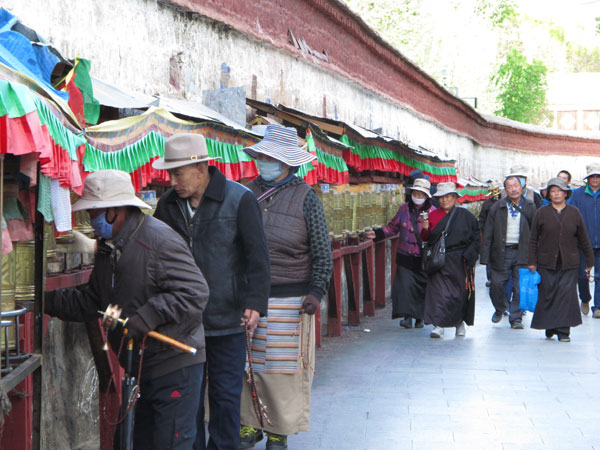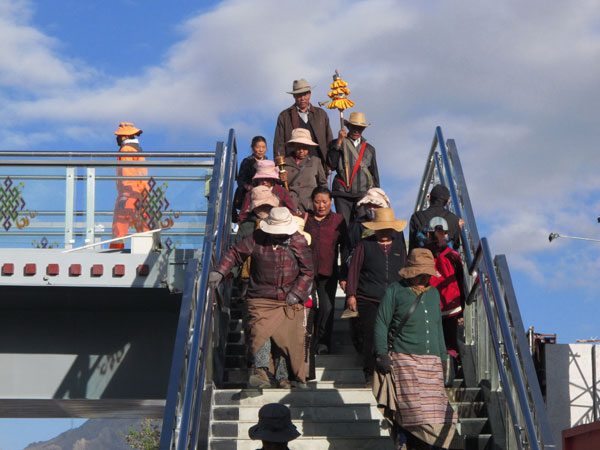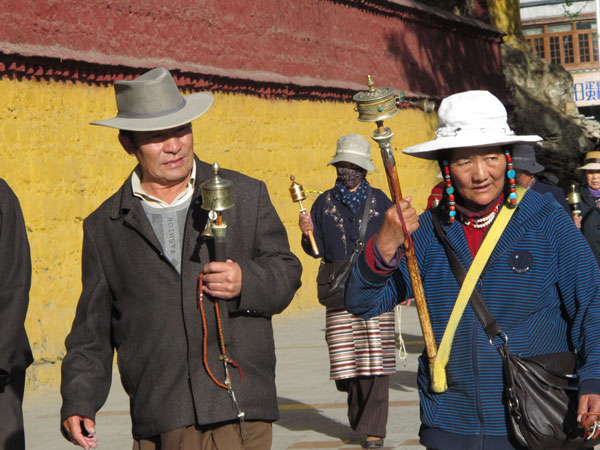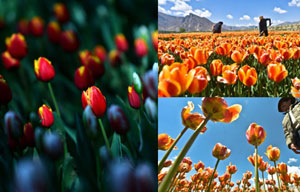New overpasses makes pilgrimages easier in Lhasa
 |
|
Pilgrims cross the newly built overpassed on their way of circumambulation. [Photo by Palden Nyima/China Daily] |
Major routes for pilgrims in Lhasa are crowded throughout the fourth month in the Tibetan calendar every year as locals celebrate the monthlong Saga Dawa Festival.
It was no exception this year, as the most important annual religious feast for Tibetans started on May 10.
But the pilgrims, who came from all over the plateau to Lhasa, found to their delight that something was missing on their route of circumambulation, a religious practice in which they walk around the temples.
“No longer do we have to cross against red lights to cross the street”, said Tsedan Dradul, who had done three circumambulations around the Potala Palace on the morning of May 10.
 |
|
Pilgrims cross the newly built overpassed on their way of circumambulation. [Photo by Palden Nyima/China Daily] |
?“The government has built many overpasses along the pilgrimage routes, which makes our daily religious practices more convenient, time-efficient and safer,” said the 55-year-old from Chamdo prefecture, about 120 km from Lhasa.
During the circumambulation, pilgrims walk and chant with prayer wheels in their right hands and prayer beads in their left hands. There are three main circumambulation routes for pilgrims in Lhasa — Barkhor, the circle around the Jokhang Temple; Tsekhor, the one around Potala Palace; and one around all the monasteries in the old city, Lingkhor.
Completing the Lingkhor route takes about three hours. For their convenience and safety, free drinking tea, hot water and medical supplies were provided by the government along the pilgrims’ route.
 |
|
Pilgrims cross the newly built overpassed on their way of circumambulation. [Photo by Palden Nyima/China Daily] |
“During the Saga Dawa month, we can get free blood-pressure checks, free rest places, free hot water and tea, free medicines such as hypotensor, and painkillers”, said Tondrub, a senior local resident.
According to Tibetan historical records, the 15th day of the fourth Tibetan lunar month is the date of Buddha’s birth, enlightenment, and nirvana.
During the month of Saga Dawa, many locals choose to have a vegetable diet, and people across the plateau also perform religious rituals with animals, which Tibetans consider holy.
|
|
|






















